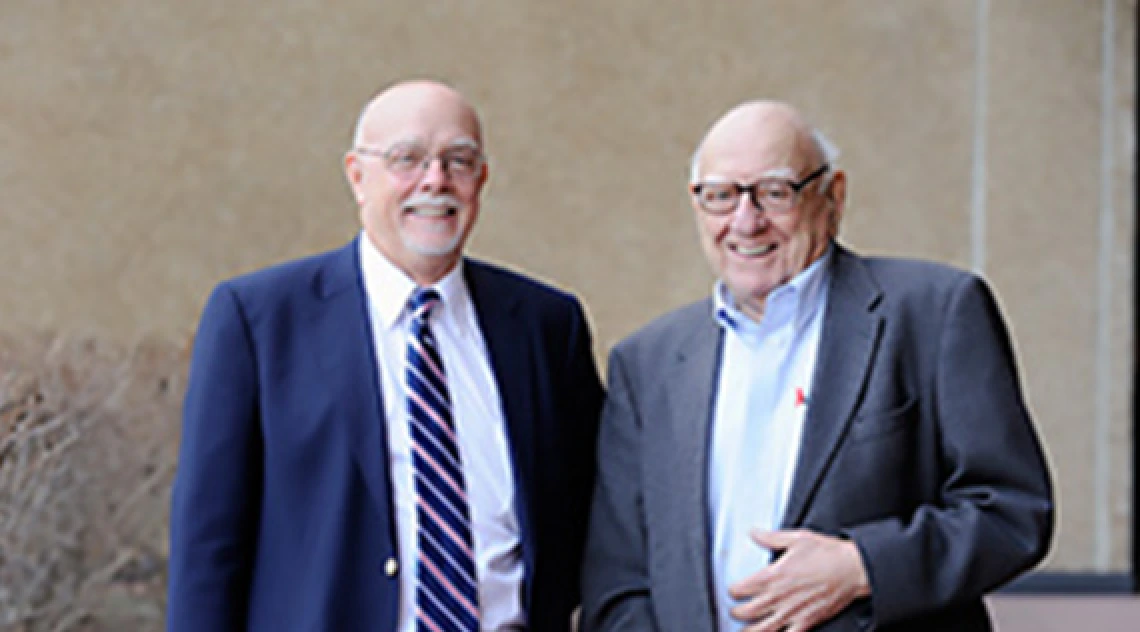Remembering Dr. H. Vasken Aposhian

 Dr. H. Vasken Aposhian was born on January 28, 1926, to his parents, survivors of the Armenian Genocide. During WWII he served in the Navy and was stationed at Midway.
Dr. H. Vasken Aposhian was born on January 28, 1926, to his parents, survivors of the Armenian Genocide. During WWII he served in the Navy and was stationed at Midway.
Afeter his service, Aposhian received his B.S. in Chemistry from Brown University in 1948, where he met and then married his wife, Mary (Zaidan) Aposhian. He obtained his Ph.D. in Chemistry from the University of Rochester in 1953, followed by a post-doctoral fellowship with Nobel Laureate Dr. Arthur Kornberg at Stanford University. He progressed through the academic ranks with appointments at Vanderbilt University, Tufts University, and the University of Maryland.
As a professor, he taught microbiology, cell biology, molecular biology, biochemistry, pharmacology and toxicology. He mentored numerous graduate students and supervised their thesis and dissertation research projects. He was a dedicated mentor to his students and to junior faculty and his collaborators. He, his wife Mary (a chemist), and various graduate students traveled the world performing toxicology research on mercury, lead and arsenic.
Aposhian was one of the world's leading authorities on the toxicology of heavy metals, arsenic and mercury in particular. This has included the enzymology of arsenic biotransformation and the study of human populations in Chile, Inner Mongolia, Romania, Mexico and rural Southwest China as to their body burden of arsenic or mercury. He was best known for his pioneering work on Succimer and Unithiol in the treatment of arsenic, mercury, lead and other heavy metals. The results of his studies led to FDA approval of succimer in childhood lead poisoning.
Aposhian was appointed Chair of the Department of Cell and Developmental Biology at the University of Arizona from 1975 to ‘79 and remained as Professor until his retirement in 2010. He was a strong advocate for the nascent Toxicology Program at the university, and his support helped establish the program and eventually helped the program be awarded the NIEHS-sponsored Training Grant, Toxicology Center and Superfund Program. Much of Aposhian’s own research was supported by the NIEHS-sponsored Superfund Program at the university.
Aposhian retired from the University of Arizona as Professor Emeritus, but remained active in his field for many years, writing articles, speaking at conferences, serving as a consultant, and testifying as an expert witness in court cases. Throughout his career, he received numerous scientific awards.
Aposhian displayed a tremendous zest for life. He was an avid reader, especially of military history, The New York Times and spy novels. He was a connoisseur of ice cream and other sweets. He loved musicals, particularly South Pacific. In his later years, Aposhian moved to Massachusetts where he enjoyed living in the seaside communities of Gloucester and Rockport. He passed away on September 6, 2019.

